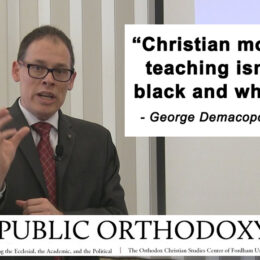Center for a Just Society | Millie McGehee Dasher | May 4, 2007
We have seen now how the pro-choice movement descends directly from its intellectual predecessor, pro-slavery America. Pro-life Americans ought to be proud to align themselves with Abraham Lincoln, and the pro-choice crowd is now faced with the fact that they cannot support civil rights and abortion, and that their intellectual company ought to make them uncomfortable and willing to reconsider their position.
Originating with the great campaign against human rights, Robert Bork has argued that the pro-choice mentality leads one quickly down a slope which destroys even more human rights. And we are rapidly arriving.
The Lincoln-Singer Debates
Peter Singer, supposed ethicist and one of the few honest advocates for the pro-choice crowd, asserts repeatedly that all life is not equal. Killing innocents is not always wrong, and assuming that human life is superior to the life of various other species is erroneous. Moving from the notion that women have the right to terminate their babies’ lives, Singer argues that handicapped children, Alzheimer’s patients, children a few weeks old, persons with autism who cannot love (or express love), those without a conscious will, and humans so injured as to be in vegetative states have no right to life.
A single sentence of Lincoln’s is sufficient to respond to Singer: “why will you…deny the humanity of the [person]? And estimate him only as the equal of the hog?” Regardless of the age, consciousness, intelligence, or race of the human in question, no valid excuse exists for denying someone else his fundamental rights based on factors which he cannot alter.
Singer would likely be apathetic to the notion that Lincoln would argue vehemently against Singer’s ideas, but one must wonder why Singer is so dedicated to denying the humanity of certain individuals.
Such is the argument Lincoln made against Stephen Douglas and the entire Democrat party: the Democrats had denied the “manhood” of the Negro, denied or dwarfed the “wrong of his bondage,” destroyed the sympathy the white man ought to have for the Negro, and called doing thus “a sacred right of self-government.”
. . . more



